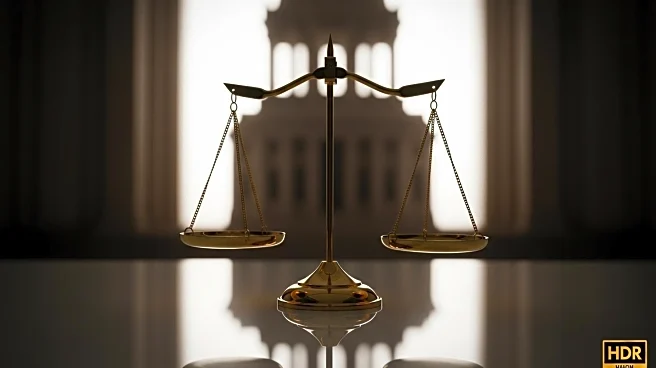What's Happening?
Federal judges are expressing frustration with the Supreme Court's use of shadow docket rulings, which are decisions made without full briefing or oral argument. U.S. District Judge Allison Burroughs recently criticized the Supreme Court for its cryptic orders and for scolding lower courts that struggle to interpret these decisions. This criticism is part of a broader discontent among lower court judges who feel undermined by the Supreme Court's actions. The Trump administration faced a setback when Judge Burroughs ruled against its attempt to cancel $2.2 billion in federal grants for Harvard, citing First Amendment violations.
Why It's Important?
The growing discontent among federal judges highlights concerns about the Supreme Court's influence on lower courts and its impact on judicial independence. The shadow docket decisions, often lacking transparency, can undermine the authority and confidence of lower courts, affecting their ability to enforce rulings. This tension may lead to broader implications for the judiciary's role in checking executive power, especially in cases involving the Trump administration. The criticism from judges like Burroughs reflects a potential shift in how lower courts may respond to Supreme Court directives, possibly affecting future legal interpretations and enforcement.
What's Next?
The Supreme Court may face increased scrutiny and pressure to clarify its shadow docket decisions. Lower courts might continue to challenge these rulings, potentially leading to more public and legal debates about judicial transparency and accountability. The Trump administration's legal strategies could be impacted by these developments, as lower courts assert their independence. The ongoing dialogue between the judiciary and the Supreme Court may influence future judicial appointments and the broader legal landscape.









